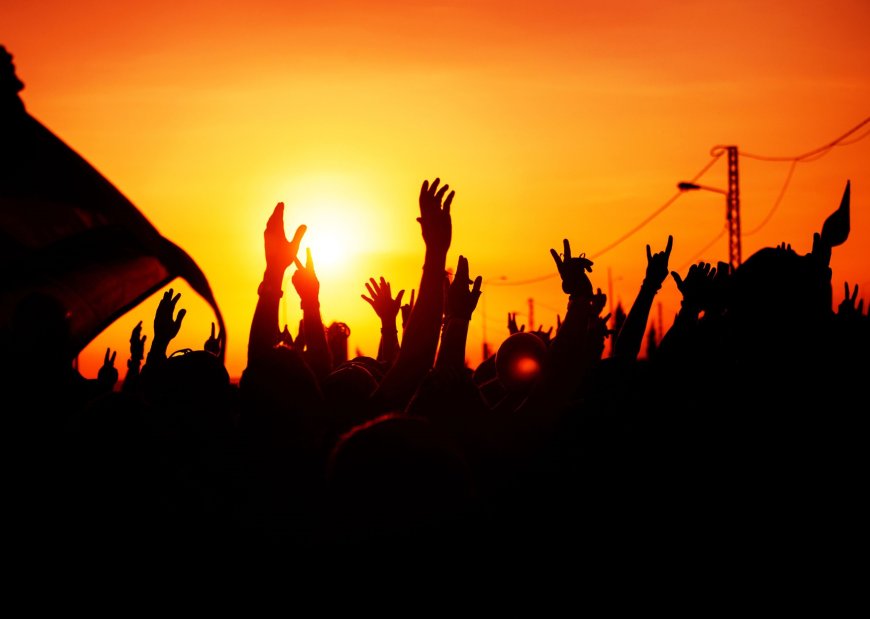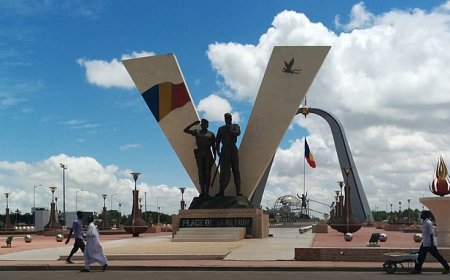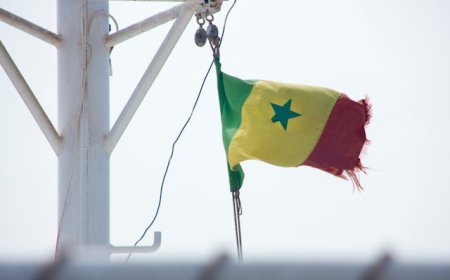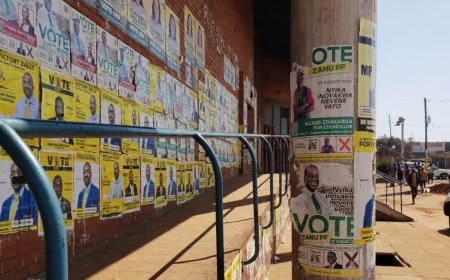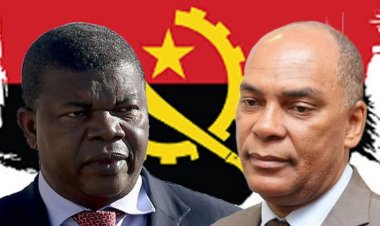This article is part of a series on the Nigerian 2023 Elections. The series is edited by Serwah Prempeh and Dr. Olumide Abimbola.
Summary
- Three things, political equity, national stability and political ethics, dominate Nigeria’s political economy and will continue to do so even after the 2023 elections.
- Nigeria faces its most fiercely contested presidential election since the return to civil rule in 1999. However, the outcome will not be seismic.
- Who wins the presidency and what they represent will impact the three things that dominate Nigeria’s political economy but not enough to reform the way Nigeria addresses these issues.
Background
At 24 years and counting, Nigeria is experiencing its longest period of uninterrupted civil rule. However, it barely qualifies as a democracy. Scoring less than half in Freedom House’s assessment, Nigeria is only partly free and exhibits features more in tune with a competitive authoritarian state. However, the campaign for the 2023 elections and the outcome could provide opportunities for the country to meet some democratic milestones and strengthen its democratic culture.
Three things have dominated Nigeria's political economy since independence. One, the political equity and political succession dictated by Nigeria’s complex ethnic and faith mosaic and by the need to distribute power and its benefits fairly among its various components. By 1999, Nigeria had experienced 11 regimes, of which only two were elected. The default, with either the military or civilians, is a preoccupation with extending a grip on power directly or through proxy. Two, national stability, aka non-negotiable unity. From 1967-1970, Nigeria fought a bitter civil war that continues to influence politics. It has also suffered multiple insurgencies from the Niger Delta quest for resource control and the Maitasine riots to Boko Haram’s war to create an Islamic state and Indigenous People of Biafra’s (IPOB) secessionist agitation. Three, political ethics and the containment of corruption. Again, civilians and soldiers alike find an appealing rhetorical mission in proclaiming war against corruption, even when, in fact, they are working hard to deepen it. These factors shape Nigeria’s politics, dominated the run-up to the 2023 elections and will continue to determine the trajectory of the nation post-election.
When Muhammadu Buhari was elected in 2015 after his fourth attempt, expectations were high. He met the aspirations of political equity in two ways – as a Fulani Muslim from Katsina State in North West (NW) Nigeria, he was the perfect foil for incumbent president Goodluck Jonathan, an Ijaw Christian from Bayelsa in the South. He also addressed feelings of inequity arising from the death of Umaru Yar’adua, a Muslim Fulani also from Katsina, three years into his tenure as president and his replacement by Jonathan: animosities had arisen from the replacement of a Muslim by yet another Christian so shortly after Olusegun Obasanjo’s (a Christian from Ogun in the South West (SW) region), relatively long presidential rule (1999-2007). Buhari, the messiah, was also expected to tackle the second and third elements of Nigeria’s political economy: a retired soldier with a reputation for ruthlessness, he would end the deadly Boko Haram insurgency that threatened Nigeria’s stability and secure the country and as Mai Gaskiya, the honest one, he would finally slay the demon of corruption.
Seven years and nine months later, Nigeria is bleeding from a thousand small cuts due to hydra-headed insecurity from a splintered, degraded but still operating Boko Haram in the North East, bandits who steal cattle, extort, rape, murder and sell security across the NW, constant clashes between pastoralists and farmers across North Central and parts of the South East and SW, a violent secessionist group, IPOB, in the SE and kidnapping as a lucrative business across the length and breadth of Nigeria. Plagued for most of his tenure with allegations of nepotism, President Buhari’s party, the All Progressive Congress (APC), have stomped on political equity in their bid to engineer succession by presenting a same faith ticket with Bola Tinubu, a Yoruba Muslim and Kashim Shettima, a Kanuri Muslim. Coincidentally or not, the major opposition party, the Peoples Democratic Party (PDP), has also set aside national political equity custom and presented Atiku Abubakar, a Fulani Muslim, from Adamawa as its presidential candidate.
On corruption, the headlines from the Buhari’s administration tell the reality, and Richard A Joseph’s observation is pertinent: ‘whether one examines attitudes towards freedom of the press or the separation between public and private funds, Nigerian political actors usually managed simultaneously to uphold these values and to dispense with them in practice.” In other words, as the Nigerian streets put it, ‘my corruption is better than your corruption.’
In addition to fulfilling the expectations of Nigeria’s political economy, Buhari’s election heralded a major milestone in Nigeria’s democracy: a peaceful transfer of power from an incumbent, a process that speaks of political succession. This symbol of the maturation of democracy came with great expectations that this process would translate to vibrant democratic freedoms and credible elections. The 2019 elections, where Buhari secured a second term, were the worst since 2007. Buhari, a man who had contested the results of every election he had lost, had no executive bill on electoral reform. Instead, his first term was a catalogue of infighting within the APC and the APC-led National Assembly. It was only 12 months before the 2023 elections that the much-awaited amendments to the Electoral Act were ratified.
Possible scenarios for the 2023 presidential election
The 2023 presidential election is a three-way race between Atiku Abubakar (PDP), Peter Obi (Labour Party) and Bola Tinubu (APC) with various polls favoring different candidates, with Obi pollwise as the favorite. Unfortunately, regardless of who wins, there will be no seismic shifts in favor of democracy and good governance - even if Nigeria hits new democratic milestones such as a run-off or the two-turnover principle.
A Tinubu win will fuel feelings of marginalization and set a new precedent against the recent arrangement of balanced religious representation for national tickets. Health limitations aside, the popular belief is that he will run a more effective government than Buhari. If Atiku wins, the Fulani domination narrative will thrive, particularly as his emergence as PDP flagbearer has been charged with exactly that accusation by members of his party. Expectations are high that an Atiku presidency will be inclusive with a bias towards business. An Obi win will delight Nigerians exhausted by the status quo and those who believe Nigeria’s stability hinges on political equity, which dictates support for an Igbo presidency. However, the weaponization of religious differences during the campaigns, mixed with ethnic superiority narratives, means an Obi presidency could face an insurrection. Unfortunately, there are no quick solutions to mitigating long-standing stereotypes and the scare narratives about ethnic and religious dominance.
The results of the 2023 elections could trigger unrest that, in a contagious season of coups in West Africa, is worrisome. There are multiple scenarios. First, Nigeria has a reputation for violent elections and post-election violence. The non-acceptance of the results of a fiercely contested election being fought along ethnic and religious lines could become difficult to contain. Second, even supposing that Nigeria avoids or contains post-election violence, popular protest could still erupt because the honeymoon period for the new administration will be short to non-existent, particularly if, as some candidates are promising, fuel subsidies end. A strong perception that a new administration is no different from the current one, particularly with regard to nepotism in political appointments, managing insecurity and improving the economy, could lead to widespread protests. An Obi win could also lead to protests of the activated citizen variety if he cannot govern because his political party does not have a working coalition in the National Assembly and with governors. As president, he would also face steep, ideological opposition to his policies from his own party, for instance, on removing fuel subsidies.
What’s next for Nigeria's Democracy after the 2023 elections?
In terms of democracy, the outcome and impact of the 2023 elections will be a mixed bag. On the positives, depending on who wins the presidential election, there could be pivotal developments in Nigeria’s political equity balancing act – particularly the rules of rotation of power between north and south and the necessity for religiously balanced tickets. The organic coalition around Obi as the third-force candidate is a positive marker for democratic maturation: citizens with a strong sense of their power to drive the agenda and ‘make’ a candidate. The wide spread feeling of dissatisfaction with the status quo should encourage APC and PDP to reform, the way the United States Democratic Party Convention of 1968 forced the Democratic Party to change.
Confidence in the Independent National Electoral Commission and the elections will be boosted considerably by another turnover of power between political parties, higher than average voter turnout and successful use of new technological enhancements to voter accreditation and results transmission, and that boost will also be a bonus for democratic maturation.
However, when it comes to democratic institutions and processes, the 2023 elections have further weakened the checks and balances between the three arms of government. The Supreme Court has lost major credibility over the last few years, particularly around election petitions. The recent judgement favoring Ahmed Lawan, Senate President (2019-2023), is only one of many egregious cases. The media – openly partisan, will continue to have its independence whittled away, particularly if Tinubu, with publicly known investments in the media, becomes President. As a member of the incumbent party that attacked media freedoms repeatedly and with full knowledge of how his media operations run, barriers to entry and operations will increase. Again, while logical for APC and PDP to reform, considering the plebiscite on them that Obi and Kwankwaso (New Nigeria People's Party (NNPP)) represent, if either candidate wins, the parties will preserve their commitment to authoritarianism, particularly with APC, where Tinubu’s track record since 1999 indicates he will influence all primaries. Governors and federal and state legislators will continue to be unaccountable, partly because Nigerians are not paying enough attention to these positions. In a recent SBM Intelligence report, only 34 percent and 14 percent of those polled are interested in the gubernatorial and state assembly elections, respectively. But 100 percent were interested in the presidential election. This disinterest will not change regardless of who wins the presidency.
For politics and political parties, the 2023 elections could have other consequences related to internal party functions and processes such as PDP and APC reviewing membership recruitment and primaries. But so far, there is little from the primaries and the campaigns to suggest that politicians or the average Nigerian will change their attitudes and understanding. There is a generally accepted sense of what it takes to be a successful politician or government official and until enough people reject and design new elements of success, elections alone, no matter how much they satisfy democratic markers, will not yield the reforms and returns required to move Nigeria towards development and accountable governments.
Finally, and by no means exhaustively, local government elections and governance will not improve, and the gap that this represents in the lives of Nigerians in terms of development and public goods will make it increasingly difficult to address insecurity and poverty. Sadly, not enough Nigerians have learnt from the high expectations pinned on Buhari in 2015. Not only did he show himself ill-suited to leading with empathy and decisiveness but Nigeria’s constitutional framework, government bureaucracy and political ethos are also designed for capture and exploitation. No one, even those at the helm of a powerful presidency, with the best intentions and capacity can singlehandedly address the breakdown of public service and good governance at the state and local government levels. The underproductivity, crime and unemployability of millions are the result of decades of poor to non-existent local governance, particularly in vital public services such as health, education, policing and dispensation of justice. These gaps all intersect as reasons why 133M Nigerians are in multi-dimensional poverty. The power of governors to do exactly what they like, while being steadily funded from ‘federal allocations’ is not going to be tempered by who emerges president in 2023, and neither will this impact a venal legislature whose raison d’etre is to pad budgets and extort government agencies with the connivance of public and civil servants.
The collective citizen unlearning, learning and application curve with regard to Nigeria’s political economy is still slow – this is why, despite the evident failures of the Buhari administration and APC in general, public scrutiny and energy for 2023 elections are predominantly on presidential candidates instead of on the entire value chain of elected officials. While constitutional reform is vital to addressing the balance of responsibilities between federal and state governments and adjusting incentives for being in government through funding allocations, some of the reforms Nigeria needs can be addressed by questioning and breaking precedents through strategic litigation, advocacy and protests.
Unless the new administration takes bold steps to build strong institutions, Nigeria’s political economy will continue to revolve around corruption, forced unity and balanced representation. Without reframing these issues outside the monopoly of the status quo, represented today by most of the political class, Nigeria risks becoming more authoritarian. Elections, no matter how hard fought, do not make a democracy – to be democratic, Nigeria needs to complement the periodic elections with independent institutions, checks and balances, respect for law and order and a commitment to freedoms and rights.
About the Author
Ayisha Osori is a lawyer, writer and development practitioner with experience in the public and private sectors and the author of Love Does Not Win Elections. She is a graduate of the University of Lagos, Harvard Law School and Harvard Kennedy School. Osori is currently Director, Executive Vice President’s Office, Open Society Foundations, a political philanthropic grant making and advocacy organization.
